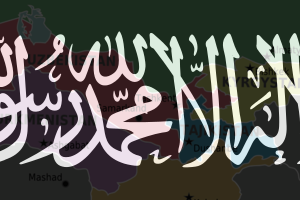CACI Analyst, July 8, 2015
Contents
Analytical Articles
THE UZBEK-TAJIK DÉTENTE: CAN IT LAST?, by George Voloshin
AGRI’S PROGRESS ADVANCES BRUSSELS’ AND BAKU’S ENERGY AGENDAS, by Micha’el Tanchum
ISLAMIC STATE IN CENTRAL ASIA: THREAT OR OPPORTUNITY, by Charlie Smith
IS THE NORTH CAUCASUS BECOMING ANOTHER BATTLEFIELD IN THE GLOBAL JIHAD?, by Tomáš Baranec
Field Reports
TAJIKISTAN’S GOVERNMENT MISSES THE REAL PROBLEM OF LABOR MIGRANTS, by Oleg Salimov
RULING COALITION TO CUT FUNCTION OF GEORGIA’S NATIONAL BANK, by Eka Janashia
KYRGYZSTAN’S CONSTITUTIONAL CHAMBER DISMISSES JUDGE, by Arslan Sabyrbekov
BAKU CRACKS DOWN ON ALTERNATIVE MEDIA AFTER CONCLUDING EUROPEAN GAMES, by Mina Muradova
Islamic State in Central Asia: threat or opportunity
By Charlie Smith (08/07/2015 issue of the CACI Analyst)
Central Asia is a key region that many believe has fallen into the crosshairs of the terrorist group calling itself the Islamic State (ISIS). Local governments are gravely concerned about returning fighters and possible ISIS infiltration in the region, and foreign powers, especially neighboring Russia and China, have expressed their deep concerns. This grim picture, however, obscures a more complex, and perhaps more accurate, story. Might the specter of ISIS have less to do with its on-the-ground ability to destabilize the region and more to do with the geopolitical concerns of those who are stating these threats?

Is the North Caucasus becoming another battlefield in the global jihad?
By Tomáš Baranec (08/07/2015 issue of the CACI Analyst)
The continuous crackdowns on North Caucasian militants conducted by Russian security forces intensified in first half of 2015, deepening the crisis caused by the split in the Caucasus emirate. Although security forces are targeting both Caucasus emirate loyalists and pro-Islamic State rebels, the former appear less resilient to such operations. Paradoxically, in comparison to the pro-ISIS group, the Caucasus emirate is better established and hierarchal and its cells are therefore more easily infiltrated by moles. The assassination of the Caucasus emirate’s emir Aliaskhab Kebedov, nom de guerre Ali Abu Muhammad, dealt a fatal blow to the virtual theocracy, facing a decreasing pool of possible recruits and increasing competition from ISIS. Despite such developments, it remains unlikely that ISIS, with its brutal methods, will prove capable of establishing itself in the North Caucasus.
Existing Paradigms for Resistance in the North Caucasus Challenged by Kadyrov, ISIS
By Kevin Daniel Leahy (06/24/2015 issue of the CACI Analyst)
With the recent death of its leader and the decisions by numerous field commanders in Dagestan and Chechnya to disassociate themselves with the organization, analysts are wondering if the Caucasus Emirate can endure. The terrorist group calling itself the Islamic State (ISIS) has emerged as the latest paradigm for resistance to Russian rule in the Caucasus. It is, however, only the latest in a long line of such paradigms to take root in the region, competing with the Caucasus Emirate, Chechen nationalism and other forms of ethnic separatism. What is the outlook for ISIS as a paradigm for resistance in the North Caucasus?

CACI Analyst, June 24, 2015
Contents
Analytical Articles
EXISTING PARADIGMS FOR RESISTANCE IN THE NORTH CAUCASUS CHALLENGED BY KADYROV, ISIS, by Kevin Daniel Leahy
FOOTBALL NATIONALISM AMONG IRAN’S AZERIS, by Emil Souleimanov
KAZAKHSTAN COMPLETES WTO ACCESSION NEGOTIATIONS, by Nurzhan Zhambekov
AZERBAIJAN AND THE EU, by Natalia Konarzewska
Field Reports
RUSSIA ENHANCES ITS SOFT POWER IN GEORGIA THROUGH LOCAL NGOs, by Eka Janashia
BISHKEK AND TASHKENT FACE UNEASY RELATIONS, by Arslan Sabyrbekov
TAJIKISTAN’S ISLAMIC RESISTANCE PARTY STRUGGLES TO SURVIVE, by Oleg Salimov
ARMENIA AND IRAN HOLD POLITICAL CONSULTATIONS, by Erik Davtyan





